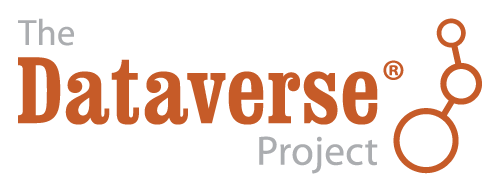A new hub for data in randomized evaluations
Today, J-PAL and IPA are excited to announce the creation of the new Datahub for Field Experiments in Economics and Public Policy. With this new dataverse, we will be housing all datasets published on The Dataverse Project by our respective organizations in one centralized location.
Our organizations have made impressive strides in recent years in publishing data: we have made available more than 140 datasets from studies about poverty and development conducted by our researchers around the world. This joint effort will bring together our two dataverses. In doing so, we aim to facilitate the search and discovery of new and existing datasets pertaining to field experiments carried out by our organizations and affiliated researchers.
This dataverse will strengthen IPA and J-PAL’s commitment to research transparency, specifically data publication, and facilitate the reuse of research data. It will also enable us to increase our efforts in building more consistent and robust metadata. The dataverse is open to J-PAL/IPA partner organizations interested in joining and supporting further expansion of these efforts.
Anyone can visit the Datahub to search for and download existing datasets to support their own research or replicate existing research. Most datasets include original data from the study; programming code written to run the analysis; instructional documentation on the data, code, and variables; and the survey documents used to collect the data. We outlined a few reasons why researchers should publish their data in a previous blog post earlier this year.

Some examples of published data include:
Recently published
-
Measuring Productivity: Lessons from Tailored Surveys and Productivity Benchmarking. Data and code for a study that explores different ways to measure productivity. It uses detailed data from 219 rug-making firms in Fowa, Egypt collected from 2010 to 2014 to explore how well these firms produce output, revenue and quality. They document how these varied productivity measures compare to the most commonly used measures in the literature.
-
Clinical Decision Support for High-Cost Imaging: a Randomized Clinical Trial. Data collected from health providers who ordered low-cost imaging scanners from November 2015 to October 2016. The code analyzes the effect of a software that provides information on high-cost images on the amount of scan orders by health providers.
-
Follow the money not the cash: Comparing methods for identifying consumption and investment responses to a liquidity shock Data, code and surveys used for data collection to measure the impacts of liquidity shocks on spending in a 2010-2015 study out of the Filipino cities Manila and Luzon.
-
Getting to the Top of Mind: How Reminders Increase Savings Data and code for the publication tables are included for this study on the ability of reminder messages to increase commitment attainment for recently opened savings-account holders. This study was conducted from 2006-2008 in a mix of rural and urban areas within the Philippines, Bolivia and Peru.
Most downloaded
-
The Diffusion of Microfinance. A dataset containing information on the demographic and social network in 43 villages from 2006 to 2007 in South India before and after an introduction of microfinance. The code is used to answer how participation in a microfinance program diffuses through social networks.
-
Measuring the Impact of Microfinance in Hyderabad, India. A dataset that provides information on 2,800 households living in slums in Hyderabad, Andhra Pradesh from 2005 to 2007. Information was collected on household composition, education, employment, asset ownership, decision-making, expenditure, borrowing, saving, and any businesses currently operated by the household or stopped within the last year.
-
A Multifaceted Program Causes Lasting Progress for the Very Poor: Evidence From Six Countries A dataset that provides results from six randomized control trials of an integrated approach to improve livelihoods among the poor in 6 countries: Peru, Honduras, Ghana, Ethiopia, Pakistan and India from 2007-2014. Information was collected on consumption, food security, assets, finance, time use, income and revenues, mental health, and women’s decision-making.
-
Underinvestment in a Profitables Technology: the case of Seasonal Migration in Bangladesh A dataset containing information on the results of a 2008-2011 financial intervention in northwestern Bangladesh intended to promote out-migration to nearby urban areas during the lean season before harvest in order to mitigate famine.


